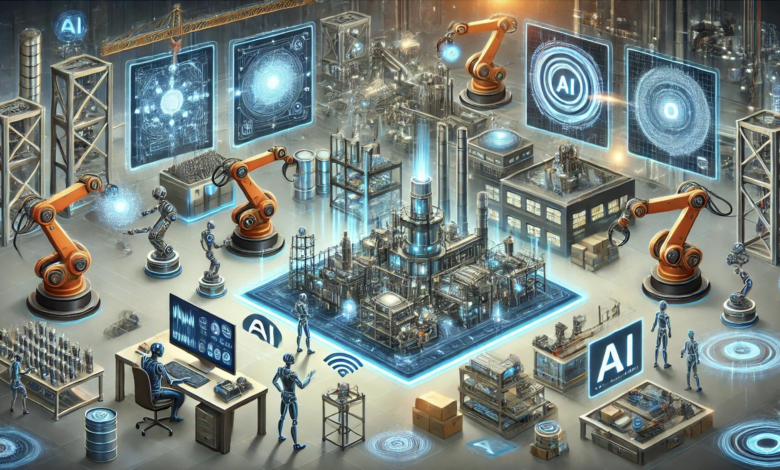
The introduction of the electric motor during the Second Industrial Revolution redefined how work was organized. Where steam engines had previously required large, centralized factories, electric motors enabled manufacturers to completely upend their approach to production.
It was a moment that unlocked a wave of innovation that shaped how all industries operated in the future.
We are now at the beginning of another seismic transformation. The rise of artificial intelligence (AI) agents—software-based autonomous decision-makers—has the potential to reshape the business landscape to the same extent as the electric motors once did. Gartner predicts that by 2028, 33% of enterprise software applications will include agentic AI, up from less than 1% today. This would enable 15% of daily work decisions to be made autonomously. The result? New levels of efficiency, scalability, and innovation.
How will this shift unfold? In three ways: reorganizing work, democratizing capability, and creating new operational models.
1. Reorganizing work
AI agents will help businesses transform their current human-centric workflows in the same way that electric motors ended the industrial dependency on centralized power.
It is possible because AI agents help businesses deploy parallel workflows and outcome-focused structures. It is moving beyond task-based roles to more agile, efficient operations.
For example, imagine a business applies for a loan with a traditional bank. The current process involves multiple departments, from the relationship manager collecting customer data, through the assessment team’s review of that data, to a third team making a final decision. It is a system determined by human limitations, with information moving in a line from one role to another.
If an AI agent were added to this process alongside the relationship manager, the agent could perform real-time data analysis and determine creditworthiness as it is fed information. The time to decision could go from 25 to 14 days, delivering faster customer service and helping the bank to generate revenue sooner.
2. Democratizing capabilities
One of the commonalities of transformative technologies is their democratizing effect. Electricity made industrial power available to businesses of all sizes, and we will see a similar effect with AI agents, as they bring advanced cognitive capabilities to a wide range of organizations.
To achieve this requires scale. AI agents must be able to meet the rigors of modern business operations. They need to:
- Allow business users to define their functions in natural languages Operate 24/7, often without supervision
- Effectively integrate with existing systems
- Be enterprise-secure
- Ensure transparency and compliance to enable auditing
Scaling AI agents across hundreds, if not thousands, of workflows is not straightforward. Some organizations may try to build their own, but experience suggests that the expertise and resources needed to develop and deploy secure, scalable agents will exceed internal abilities. It is more likely that most businesses will invest in off-the-shelf solutions, particularly when they have a specific use case in mind.
The result is that even those companies previously excluded from advanced automation can now access this transformative technology and compete on a level playing field.
3. New Operational Models
By 2030, McKinsey estimates that up to 30% of current work hours could be automated. This will trigger the rise of new operational models, such as “service-as-software.”
Service-as-software uses AI agents to perform the work. For instance, most customer relationship management (CRM) tools require a lot of data to be manually inputted. A CRM AI agent would pull data from emails, video calls, diaries, meeting notes, and other sources to keep teams continually updated with the status of a customer or prospect relationship, suggesting follow-up communication where appropriate.
Another example would be an AI agent pentester. A highly complex skill, businesses usually limit the number of human pentesters they hire due to the expense. With an AI pentester, that changes; companies could continuously pentest and keep evaluating their security systems.
This is a huge opportunity. Sequioa Capital sees it as a market to be measured in the trillions of dollars.
As these operational models evolve, so too will the pricing strategies. Rather than everyone charging similarly, we may see variations, with subscription-based fees for general-purpose agents and outcome-based pricing for more specialized solutions.
Ushering in the AI Agentic Era
In the past, transformative technologies took many years for their impact to be felt. AI agents are already demonstrating their potential, but they are not yet mainstream. Issues such as data availability and quality, as well as organizational deployment capabilities, need to be addressed to enable widespread adoption.
However, businesses need to be ready for the AI agentic era. They need to focus on preparing their organization to embrace, deploy and scale AI agents. Failure to do so will leave them in the same position as those who stuck with steam over electric motors: rapidly falling into obsolescence.



